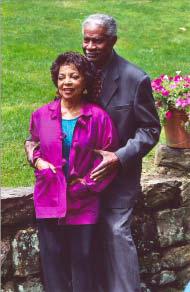Five Americans Who Lived and Left America a Better Place for All
By • June 19, 2014 0 917

Losses sometimes mount up.
In the past few days, we’ve lost a great American actress, who was, with her husband, also high in the list of eminent Civil Rights leaders, a radio deejay who defied the odds and the meaning of pop and rock popularity, a football coach who became an icon by winning four Super Bowls in Pittsburgh, a much beloved baseball star who spent his entire career in one city, and a jazz singer who never became a huge star but had an unforgettable voice.
So, we pay tribute to Ruby Dee, to Casey Kasem, to Chuck Knoll, to Tony Gwynn and to “Little” Jimmy Scott.
RUBY DEE
Ruby Dee was an indomitably brilliant actress in television, in movies and most especially on the American stage. Yet, even now, it is almost impossible to separate her from her late husband Ossie Davis, to whom she was married for 57 years, until his death in 2005. They were not only an enduring married couple, but also partners in their artistic, performing arts, in all sorts of venues, live and on film, but also in their highly visible participation in the civil rights movement. They were, if not joined at the hips, passionately united, heart, soul and mind.
They were also two unique sorts of performers. In this, Ruby Dee, who died at the age of 91 last week, was a slight head above her husband. Dee left an indelible impression, no matter what she did, she had the power as an actress to move the heart, disturb the memory and knock you around a bit in her presence on stage.
She was in “A Raisin in the Sun” on Broadway and in the movie version opposite Sidney Poitier. She played Denzel Washington’s mother in “American Gangster,” for which she was nominated for a Best Supporting Actress Oscar. She bowled over Broadway in her performance as Lea in the brilliant South African playwright Athol Fugar’s play, “Bozeman and Lea,” about a couple ostracized in Apartheid South Africa. She and Davis appeared together often most notably in “Purlie Victorious,” which Davis wrote and two films directed by Spike Lee, “Do The Right Thing” and “Jungle Fever.” They also partnered up even more notably and with courage by forging friendships with Martin Luther King, Jr., and Malcolm X . Dee emceed the 1963 March on Washington at which King gave his “I Have a Dream” speech.
They took risks together, risks that could have harmed their careers, including standing up for Ethel and Julius Rosenberg, the convicted spies who were executed in the 1950s.
But perhaps their most enduring work and partnership came as two people who loved each other with great passion, shared their passions for the work and were completely intertwined in matters of justice. According to a Washington Post profile by Will Haygood, she once gave him a note that said, “Dear Ossie, When I think of you let there silence and no writing at all. Ruby.”
This writer had the good fortune to interview them as a couple on the telephone. They were straight forward, forthright, and as best I can recall, neither interrupted the other. We saw her in “The Glass Menagerie” at Arena Stage in 1989. While the production had its problems, she was not one of them. She mesmerized. Still.
CASEY KASEM
If you were a commuter, if you rode around in a car, if you like to make a connection with the voices you heard over the car radio in the 1960s and onward through the 1970s and beyond to close to now, and if you liked rock and roll and the softer edges of pop music that would eventually lead you to a karaoke bar, you’d recognize the voice of Casey Kasem pretty much forever.
Kasem, who popularized a show called “America’s Top 40” (syndicated nationwide) over decades, passed away this weekend. His voice had already been lost from the airwaves and at 83, he had been suffering from a debilitating form of dementia. Yet, if his voice is still, it’s still remembered. He would single out songs and play them for individual listeners, a sometime sentimental ploy that proved to be highly effective. It was personalizing music in a way that shock jocks hardly ever managed. You can have fun with people that make you go deaf, but it’s hard to love them. His was an enduring voice, even as radio stations were splintering into genre choices—from jazz, to pop rock, to country, to alt, and every other taste. His top 40s show was consistently middle brow which is to say it was popular with just about everybody but the very edges, the very high brow.
It’s hard to argue with a guy who would without fail tell you: “Keep your feet on the ground, and keep reaching for the stars.”
CHUCK NOLL
Chuck Noll looked like a pro football coach. He had a burly build and a strong open face. He always looked like he was trying either to choke down a smile or a scowl during a game.
Career-wise, the man had a lot to smile about: he was the first NFL coach to win four Super Bowl titles, with Pittsburgh Steeler teams that played really stifling defense and were quarterbacked by Terry Bradshaw. Their biggest rivals in the AFC were the Oakland Raiders, owned by the Grinch-like Al Davis and sometimes coached by him. Watching those two teams go at in the 1970s was a bruising experience, especially if you happened to be standing on the sidelines—Mean Joe Green and the Pittsburgh Steelers would usually, but not always, prevail over Big Ben Davidson, George Blanda and others.
Noll won the old fashioned way. He didn’t trade away draft choices. He kept them and nurtured them. He had never coached an NFL team before he got the Steeler job, and he finished 1-13 his first year. He finished on top, in life and in football.
TONY GWYNN
Tony Gwynn died this week of cancer at the young age of 54. He lived a baseball life, he became a Hall of Famer, and he stayed in one town as a baseball player all his life. That town was San Diego, and you just don’t see that happening much any more.
But look at those stats from a guy whom his peers described as a happy guy, a good man and a brilliant baseball player, roaming right field for the San Diego Padres. They called him “Mr. Padre,” and here’s what he did: he played in two World Series, hit a bunch of singles, batted .338 lifetime, had 3,184 hits and eight National League batting titles. In 1997, he was inducted in the hall of fame with Cal Ripken, Jr., who spent his whole career in Baltimore. He was in a class all his own.
JIMMY SCOTT
If you’ve never heard of Jimmie Scott or heard him at all, it’s still not too late. He’s another reason why they created YouTube.
Scott, who died at the age of 88, has described as “star-crossed,” “under-rated,” “hard-luck” and so on, all of which is true, since he was not a huge star in the crowded firmament of jazz and pop and great song vocalists.
Given all that, he sure shone and shines bright: this thin, frail-looking guy with a high and tremulous voice who sang with the greats, including Lionel Hampton, who recorded a memorable album called “Falling in Love Is Wonderful” and had a hit with “Everybody’s Somebody’s Fool,” which could just about slam-dunk you with emotion and feeling.
Check out him out on YouTube. Listen to him. “Sometimes I Feel Like a Motherless Child.” Try “Nothing Compares to You.” That’s “Little Jimmy Scott.” See if he just doesn’t break your heart.
- Ruby Dee and Ossie Davis | Courtney Overcash



